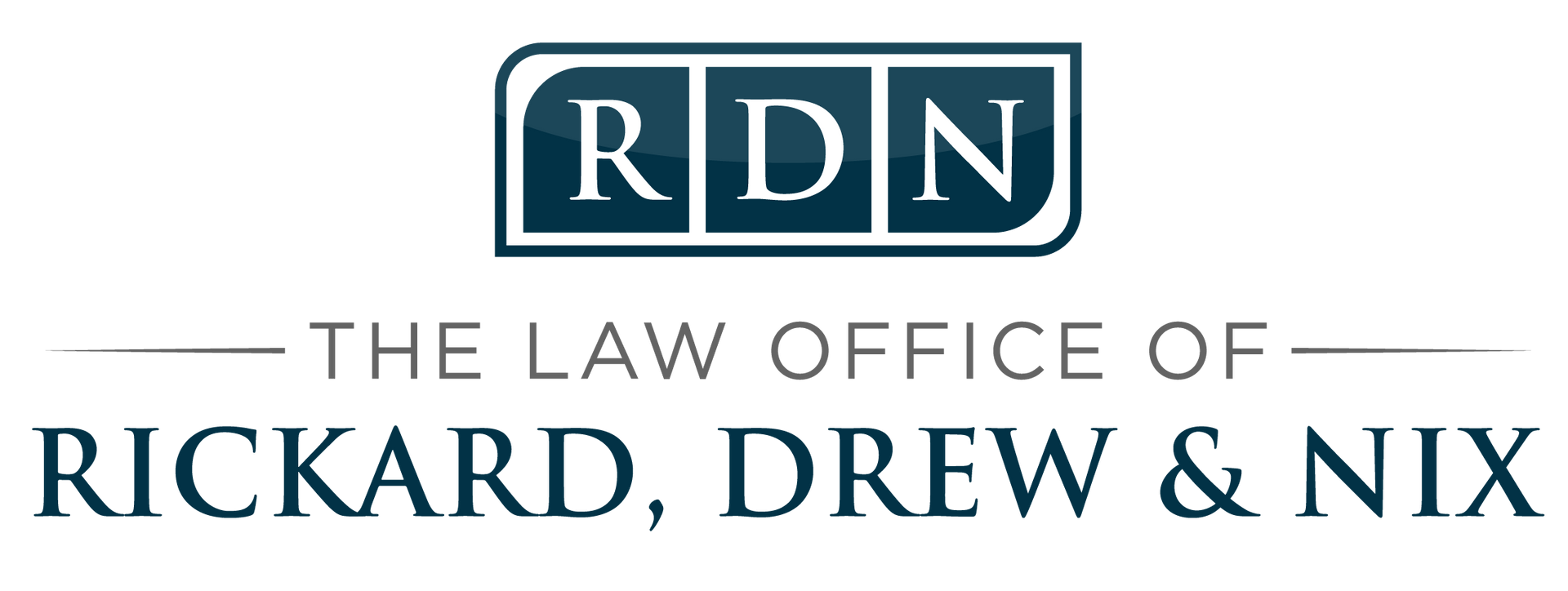By Jessica Nix
•
April 10, 2025
For those of us without any legal experience whatsoever, encountering Atlanta's courts can be incredibly intimidating. From the polished wood to the bailiff and the judge sitting above all of us, we feel small and not at all equipped for what we're about to experience. If you're working through a personal injury claim, having an experienced injury attorney by your side can be the calming factor you need, as well as the savvy strategist that's required to be successful. Atlanta's personal injury courts can be overwhelming for those unfamiliar with the legal system. Many individuals struggle with understanding court procedures and preparing effectively for their cases. This post will outline the structure of personal injury courts in Atlanta, key steps to prepare for a case, and strategies for presenting effectively. By engaging with this content, readers will gain valuable insights that help reduce stress and improve their chances for success in seeking justice and fair compensation in their personal injury claims. Understanding the Structure of Atlanta Personal Injury Courts The structure of personal injury courts in Atlanta is vital for understanding how to process an injury claim effectively. These courts handle cases related to legal liability stemming from accidents and injuries. Familiarity with this landscape helps individuals meet the legal system with confidence. In assessing a personal injury case, courts often examine causation, which establishes the link between the incident and the injuries sustained. Without proving causation, it becomes challenging to pursue a successful claim. Parties involved must gather evidence and present their arguments to support this critical element. Witness testimonies play a significant role in personal injury cases, as they can provide insights that bolster or weaken a claim. Witnesses can help establish facts about the incident and clarify the circumstances surrounding the event. Their contributions can be decisive in demonstrating legal liability. Ultimately, understanding the structure of Atlanta's personal injury courts enables individuals to approach their cases more strategically. It becomes essential to focus on gathering evidence, including witness statements, to support the claim. This preparation is crucial for managing the courtroom effectively and achieving a fair resolution. Key Steps to Prepare for a Personal Injury Case in Atlanta Gathering essential evidence, selecting appropriate legal representation, and understanding court procedures are critical steps in preparing for a personal injury case in Atlanta. Individuals must grasp the duty of care and how it impacts their claim for compensation. Familiarity with local laws and regulations, along with consulting an attorney or lawyer, can significantly enhance the likelihood of a favorable outcome before a magistrate. Gathering Essential Evidence for Your Claim Gathering essential evidence is fundamental in personal injury cases, as it substantiates a claimant's assertion regarding injuries sustained. This process may involve collecting medical records, photographs of the accident scene, and documented witness accounts. Engaging a paralegal can be beneficial during this stage, as they possess expertise in organizing and presenting evidence according to personal injury law guidelines. Moreover, understanding the doctrine of duty of care is crucial when compiling evidence. This legal principle establishes a party's obligation to act with reasonable care to prevent harm to others. By demonstrating that the opposing party breached this duty, claimants can strengthen their case, making it imperative to gather robust evidence supporting this claim. Choosing the Right Legal Representation Choosing the right legal representation is fundamental when preparing for a personal injury case in Atlanta. Individuals should seek attorneys with specific experience in relevant areas such as product liability, work accidents, or property disputes. A knowledgeable attorney can provide insight into the intricacies of local laws and the negotiation process, enhancing the chances of successfully obtaining deserved compensation. A lawyer's ability to understand different types of cases, such as those involving assault or other personal injuries, can significantly impact the outcome of a claim. Having proper legal guidance helps clients feel confident in presenting their cases, gathering essential evidence, and effectively overcoming legal challenges that arise during the courtroom process. This strategic partnership is vital for achieving a favorable resolution for those affected by unexpected incidents. Understanding Court Procedures and Timelines Understanding court procedures and timelines is crucial for individuals pursuing a personal injury claim in Atlanta. Each case follows specific steps, beginning with filing a complaint, followed by the discovery process, where parties gather evidence and information. Timely action is essential, especially if the case involves driving under the influence, as delays might impact the ability to gather vital evidence related to the incident. In personal injury cases, timelines can vary significantly based on factors such as the circumstances of the claim and the type of injuries sustained. Delay in filing can lead to complications, especially for those suffering significant property damage or physical harm. Engaging personal injury lawyers early in the process can provide clients with guidance on adhering to deadlines and understanding court procedures effectively, ultimately increasing the likelihood of a successful resolution. Familiarizing Yourself With Local Laws and Regulations Familiarizing oneself with local laws and regulations is a critical aspect of preparing for an Atlanta personal injury case. Knowledge of how local trial courts operate can help individuals comprehend the legal processes involved, especially regarding issues like negligence in cases of dog bites. Understanding the percentage of fault assigned to each party can significantly impact the compensation received, making it essential to learn about apportionment laws in Georgia. Furthermore, failure to understand specific local regulations may lead to missed opportunities in pursuing a claim. Examples include knowing the statute of limitations applicable to personal injury cases or recognizing how insurance policies interact with claims in Atlanta. By gaining insights into these laws, individuals can build stronger cases, so they are well-prepared to present their arguments effectively in the courtroom. Effective Strategies for Presenting Your Case Success in Atlanta's personal injury courts requires effective strategies, such as crafting a compelling narrative that resonates with judges and juries. Utilizing expert witnesses can strengthen arguments, particularly in cases involving insurance companies or wrongful death claims. Presenting damage claims accurately is crucial, as is handling cross-examinations with confidence, especially when addressing intentional torts or statutory limitations. These strategies not only enhance the persuasiveness of a claim but also make sure the case is positioned to achieve fair compensation for pain and suffering. Being well-prepared in these areas can significantly influence the outcome in personal injury cases. Crafting a Compelling Narrative Crafting a compelling narrative is essential in Georgia personal injury cases, as it allows clients to clearly present their situation to judges and juries. A well-structured story can illustrate how the injury affected the claimant's life, helping the court understand the personal impact beyond the mere figures of compensation. By integrating knowledge of civil law, individuals can link their experiences to legal standards, enhancing the persuasiveness of their argument and making it more relatable to those deciding their fate. Moreover, in personal injury cases, highlighting specific details about the incident can strengthen a narrative significantly. For instance, discussing how a misdemeanor or negligent act directly led to the injuries suffered allows the claimant to establish a clear connection between the events and their consequences. This structured approach not only engages the court but also builds a solid foundation for seeking justice under Georgia law, ultimately positioning the case for favorable outcomes. Utilizing Expert Witnesses to Strengthen Your Argument Utilizing expert witnesses can significantly enhance a personal injury claim in Atlanta, especially in cases involving slip and fall incidents. These specialists provide credible testimony regarding specific aspects of the case, such as the safety standards of the property where the event occurred and the extent of the injuries sustained. Their insights can clarify complicated concepts related to contributory negligence, helping the court understand the details of liability and responsibility. Expert witnesses play a crucial role in influencing outcomes in personal injury cases, often impacting decisions made by juries or appellate courts. By effectively communicating technical information in an understandable way, they help establish a clearer narrative around the incident. This strong foundation can promote a more favorable perception of the claimant’s position, ultimately strengthening the argument for just compensation. Presenting Damage Claims Accurately Accurately presenting damage claims is crucial for individuals involved in Atlanta car accident cases. Understanding the types of damages, such as medical expenses, lost wages, and pain and suffering, allows claimants to provide a comprehensive overview of their situation. Seeking legal advice from qualified attorneys can aid in quantifying damages so all significant costs are considered, strengthening the overall argument when presented in court. In cases involving strict liability, where fault does not need to be proven, it becomes even more important to effectively detail the damages sustained. Providing detailed documentation, such as medical records and proof of lost income, will support the claim for financial compensation. Clear and precise presentation of these damages enhances the court's understanding of the claimant's needs, helping to facilitate a favorable outcome for those pursuing justice in the legal system. Handling Cross-Examinations With Confidence Handling cross-examinations with confidence is vital in personal injury cases, especially when discussing issues such as fault in motor vehicle accidents. A claimant who prepares thoroughly understands the testimony presented by the opposing side and anticipates potential questions. This preparation helps clients respond effectively, reinforcing their position by clarifying any inconsistencies in the opposing testimony. Moreover, being composed during cross-examination can significantly influence the court's perception. Individuals should practice their responses, helping them clearly convey key points about the tort at hand. This approach not only strengthens the credibility of the testimony but also empowers clients to articulate their experiences persuasively, ultimately aiding in the pursuit of fair compensation for their injuries. Settlement Negotiations in Atlanta Settlement negotiations effectively involve understanding when to accept a settlement offer, communicating effectively with insurance companies, and accurately assessing the true value of a claim. By grasping concepts like comparative negligence and the standard of care, individuals can make informed decisions. Considering potential punitive damages is also essential, as it influences negotiations and prepares for a possible jury trial. Each aspect plays a critical role in a fair outcome during this vital phase. Knowing When to Accept a Settlement Offer Knowing when to accept a settlement offer is a critical aspect of a personal injury case in Atlanta. Claimants must evaluate the offered amount against the evidence gathered, including medical records and documentation of lost income. If the settlement reflects fair compensation for the injuries suffered due to accidents, accepting it may be advantageous, especially when considering the uncertainties associated with trial outcomes. It is essential to understand the role of comparative fault in determining compensation. If the evidence suggests that the injured party bears some responsibility for the accident, it may influence the settlement amount. Therefore, individuals should carefully weigh the pros and cons of a settlement, making sure it aligns with their overall strategy and covers the full extent of their damages before making a decision. Communication Tips for Negotiating With Insurance Companies Effective communication with insurance companies is crucial when negotiating a settlement after an accident. Individuals should approach discussions with confidence, clearly articulating their needs and expectations. Presenting organized documentation, such as medical records and evidence of loss of consortium, can significantly strengthen a claim and demonstrate the impact of injuries on their lives. During negotiations, maintaining a calm demeanor and focusing on clear, factual information about the accident and its aftermath can positively influence the outcome. Understanding motor vehicle accident claims, including how to quantify damages and the potential for compensation, provides individuals with a solid foundation when advocating for themselves. This informed approach not only improves negotiation outcomes but also reinforces a claimant’s credibility in the eyes of insurers. Assessing the True Value of Your Claim Assessing the actual value of a personal injury claim in Atlanta involves understanding the factors that influence compensation, such as medical expenses, lost wages, and pain and suffering. Individuals must gather comprehensive evidence to support their complaint against the defendant, so all relevant details are included. For instance, if an injury occurred in a nursing home, documentation of negligence and liability insurance coverage can impact settlement negotiations significantly. To accurately determine the worth of a claim, individuals should consider both tangible and intangible damages. This includes understanding the full extent of their injuries and how they may affect daily life. Engaging with experienced attorneys who specialize in personal injury claims can provide insights into liability, helping clients manage negotiations and secure the compensation they rightfully deserve. Techniques for Managing Courtroom Anxiety Practicing mindfulness and stress-relief strategies can significantly benefit individuals facing the pressures of injury cases in Georgia, particularly in the context of courtroom settings. Preparing for possible outcomes enhances confidence during the legal process, especially following a Georgia car accident or traffic incident. By addressing these aspects, individuals can effectively manage anxiety, facilitating a smoother journey through court proceedings. Practicing Mindfulness and Stress-Relief Strategies Practicing mindfulness can greatly assist individuals during personal injury lawsuits, particularly when facing the stress of court appearances. Mindfulness techniques such as deep breathing and visualization help reduce anxiety and promote focus, allowing claimants to remain calm during critical testimonies. By maintaining a clear mind, individuals can better articulate their experiences and document the pain caused by car accident cases, reinforcing their duty to present their case effectively. Incorporating stress-relief strategies, such as brief meditation sessions before entering the courtroom, can also enhance confidence and clarity. These techniques prepare individuals mentally for the challenges of presenting their case and responding to cross-examinations. This proactive approach offfers a sense of control, helping to alleviate the fear that often accompanies personal injury proceedings and making sure their narrative is heard with impact. Preparing for Possible Outcomes Preparing for possible outcomes in personal injury cases requires plaintiffs to consider various scenarios that may unfold during court proceedings. Understanding the layout of the courthouse and the process can help alleviate anxiety. For example, anticipating questions related to premises liability or distracted driving incidents allows individuals to clarify their testimonies, contributing to a more confident presentation in front of the judge or jury. By having realistic expectations, plaintiffs can better manage their responses to different verdicts or negotiation outcomes. Consideration of potential settlements or trial results can empower individuals to remain composed. Engaging with experienced attorneys ahead of time can provide critical insights into the likelihood of various outcomes, enabling plaintiffs to approach hearings with a greater sense of preparedness and control over their cases. Resources and Support Networks for Atlanta Personal Injury Cases Local advocacy groups and legal aid options provide essential support for individuals during personal injury cases in Atlanta. Online platforms for client reviews and shared experiences offer insights into working with personal injury lawyers, giving potential clients valuable attention to their choices. Community resources further assist by offering guidance on negligence claims and the trial process, enhancing clients' preparedness and confidence. These resources help individuals understand their rights and make informed decisions, ultimately improving their chances of achieving a favorable outcome in personal injury accidents. Local Advocacy Groups and Legal Aid Options Local advocacy groups and legal aid organizations in Atlanta serve as vital resources for individuals during accidents personal injury cases. These organizations provide essential guidance and support, particularly for marginalized communities that may face barriers in pursuing justice. For example, groups focused on pedestrian safety often offer educational workshops, connecting individuals with legal representatives experienced in handling cases that involve pedestrian injuries and class action suits. Additionally, legal aid options help individuals understand their rights and jurisdiction when pursuing a personal injury claim. They offer services that encompass everything from basic legal advice to representation in court, helping claimants be well-prepared to engage with the legal system. By collaborating with these local resources, individuals can significantly enhance their ability to secure favorable verdicts in their personal injury cases. Online Platforms for Client Reviews and Experiences Online platforms for client reviews and experiences serve as invaluable tools for individuals managing personal injury cases in the metro Atlanta area. These platforms allow users to share their stories related to incidents such as car accidents or nursing home neglect, providing insights into the effectiveness and skill of various attorneys. By reading these reviews, potential clients gain a deeper understanding of which legal representatives are most suited to handle their specific cases and increase the chances of a favorable outcome. Additionally, these reviews often highlight the strengths and weaknesses of different law firms, helping clients make informed decisions regarding their legal representation. Understanding past experiences can guide individuals in selecting an attorney who resonates with their needs and who is prepared to support them through the details of the appeal process. For those dealing with a personal injury, such platforms become essential resources for enhancing their overall approach to the legal system. Community Resources for Additional Guidance Community resources in Atlanta play a crucial role in providing individuals with additional guidance when managing personal injury cases related to car accidents. Local organizations often offer educational workshops and seminars that inform residents about the important aspects of personal injury law, including the statute of limitations for filing claims. These resources empower individuals by equipping them with knowledge that can help them make effective decisions so they stay informed and compliant within the superior court system. Additionally, various advocacy groups in the community offer support tailored to specific needs, such as assistance for those injured in car accidents or related incidents. These groups can provide access to legal aid, referrals to qualified attorneys, and valuable insights into the court procedures unique to Atlanta. By engaging with these community resources, individuals can enhance their understanding of legal rights and responsibilities, ultimately improving their chances of a successful outcome in personal injury claims.




